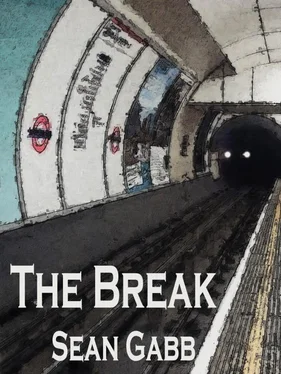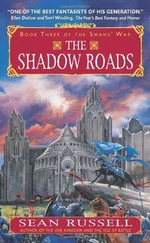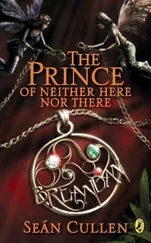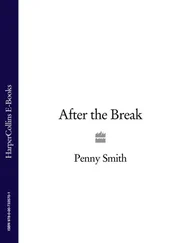Not worried about the threatening presence behind him, Simeon got to his feet. “This is outrageous! Have we found ourselves among a race of blood-drinkers?” One of the men in white coats smiled nervously and held up a small glass tube with a steel needle at its far end. Michael did now make a lunge for the stylus. He’d barely got his hand across the table, though, when four strong arms pulled him back into his seat and held him fast as the man in white came towards him.
Once he’d talked his way out of school, two years earlier, Michael’s first diplomatic mission with his uncle had been to the Turkish Sultan in Baghdad. The Arab capital had only recently fallen, and no one was certain whether and how long the Turkish leader could maintain himself on the ancient throne of the Caliphs. The whole city, when they’d arrived, was a riotous mosaic of Moslems and Christians and Jews and Arabs and Turks and all their many divisions and sub-divisions, each group struggling against the others for position. It had been impossible to say who had influence, and for what, with Tughrul, the new Commander of the Faithful. At least, however, the background of life in Baghdad had made sense. If hardly anyone knew Greek, and his own knowledge of Arabic was at first taxed to the limit, at least there was the same order of dining and bathing and sleeping arrangements. Making the obvious allowance for changes of religion and language and even of weather, he’d been among civilised men whose ways he could understand.
This new land of Britain was different. Leave aside every report until recently of a country filled with yellow-headed, cider-drinking barbarians, there was nothing familiar—nothing he could seize hold of to try and understand what has happening. Whether it was bizarre sanitary fittings, or lights without fire, or food that smelled bad and tasted of nothing, or machines in every place, all doing things and working on principles he couldn’t begin to follow, everything was alien. Had he been in this dockside prison two days, or four, or six? He’d soon lost track of time. It didn’t help that he was shut up with his uncle in a room without windows, where the lights came on and went off apparently at random.
At the moment, the two ambassadors were back in the interview room where they’d first been taken. “Since you have no passports,” Jessup apologised, “the authorities have decided to treat you as asylum seekers.” Not bothering to explain the odd collection of words, he paused again, and listened to another of the questions from the sweaty, jabbering official who sat beside him on the other side of the table. He tried to reply for Simeon and Michael. All this got him was a burst of angry shouting from the official. “The man wants to know which countries you passed through on your way here,” he asked in a tone of resignation.
Simeon pursed his lips and sat back in the metal chair. “Master Jessup,” he said firmly, “I have already told these men our route. We took ship from Constantinople, stopping at Corinth, and then at other places within the Empire on our way to Bari in Italy. From here, we passed through sundry territories of the Normans, and of the Latin Patriarch, and of the German Emperor. We passed through the Kingdom of France, and at some point we cannot closely describe through the lands of the Duke of Normandy, coming at last into the County of Flanders, which lies directly opposite this shore. We bring greetings from what Westerners call the Greek Emperor—though I am sure you know him by his correct title of the Roman Emperor. Apart from this, I will only repeat that the law of nations requires full respect for our persons. Our mission is diplomatic in nature, and we came unarmed.”
Michael listened closely as Jessup put this into the language of the Britons. It is one of the main duties of a diplomat to observe everything and to recall everything. If he was far from any general understanding of these British, he could pay attention to their language, many words in which bore a debased relationship to Latin and even Greek. He listened for the names of places and peoples as Jessup interpreted. It was interesting that all reference to the Pope seemed to be left out. Were these people actually Christians?
Jessup had left off interpreting, and was putting another case of his own. This only sent the official into more angry shouting. The door opened and another official looked in. With him came more of those guards in their glass helmets. The door still open, both officials began shouting at Jessup, and then at each other. One of them snatched at Jessup’s notes and tore them across and then across again. He threw them onto the floor and went into an aggressive laugh. He blurted out a sentence of atrociously bad Latin that contained an accusation of spying. Simeon stared calmly back. This only set the man off into more shouting in his own language. The other official shouted back louder. A third official now came in and closed the door, and the conversation settled into a quieter discussion, in which the native word for London came up with possibly hopeful frequency.
Michael looked at Jessup. Ignored by everyone else, he’d taken the glass discs from his face and was again polishing the lenses. Michael had soon guessed that the main function of these wasn’t decorative. They allowed a man who may have been in his sixties to read the very small lettering of various forms and other documents. When the lights were on in their room, and he wasn’t sleeping or in anxious conversation with his uncle, Michael had spent time looking at a big notice stuck to the wall. These people used a Latin script, and it was from the notice that he’d confirmed the derivation of perhaps half their words from the civilised languages. So far, he’d gathered that the verbs were inflected, though not, it seemed, the nouns. As it was written, the language looked simple compared with Arabic and the dialects of Turkish. The main problem was an apparent divergence between spelling and pronunciation. Because his study would have to be in secret, he’d make little further progress. He could follow nothing more of these official conversations than he could get from their context.
He glanced left as Simeon began coughing again. Almost at once, their fine diplomatic clothes had been taken from them. They had since been given single, close-fitting garments of bright orange. As Simeon put up a hand to cover his mouth, his left sleeve fell back, showing the bruise that had come up after the extraction of blood. The puncture in Michael’s own arm had soon disappeared. Was this bruise on Simeon’s arm growing? Hard to say—but it was a sight that added to his worries.
The conversation ended. Though no one appeared to have spoken directly to him, Jessup cleared his throat and turned to Michael. “You must go back to your place of confinement,” he said wearily. “Tomorrow, or the next day, these idiots will have meaningful instructions. These may be to your advantage—but please don’t take this as any kind of promise.” He ignored the suspicious looks of three officials and five guards, and smiled brightly. “It’s often hard to say, since the combined agency was set up, who is in charge here for any specific purpose. But there must eventually be a reply from London.”
►▼◄
Jessup had put on a clean shirt, and fastened the collar with a strip of dark cloth that reached to his waist. “I shan’t be coming with you,” he said, leaning forward to be heard above the noise of the seabirds. “My normal clients have insisted that I should be with them tonight.” He pulled his jacket closer about his meagre body. Though the sun shone brightly overhead, the wind from the sea was decidedly chilly. Even June by this northern sea was colder than late autumn at home.
Читать дальше












